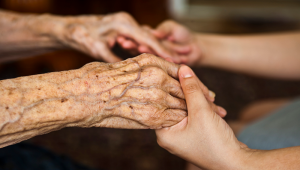Being a GP has become an exhausting job in recent years due to relentless demand at the frontline, and added responsibilities as clinical commissioners since the advent of Clinical Commissioning Groups.
On the one hand, GPs are chastised for failing to provide the access and continuity offered by yesteryear’s fictional Dr Finlay, forcing patients to flood A&E departments. On the other, they are accountable for commissioning hospital and community services in an exceptionally challenging financial era.
Under new arrangements, they have also the choice to take on co-commissioning of general practice, previously the responsibility of NHS England. And, if all this wasn’t enough, GP providers have been placed at the centre of the new models of care in the recent NHS Five Year Forward View.
It is perhaps little wonder then that GP morale is low. The recent national BMA survey of 15,000 GPs revealed that 34% are considering retiring within five years, and 37% considered their general practice workload to be ‘unmanageable’. A Nuffield Trust study exploring views of GPs as commissioners highlighted that the engagement of GPs in CCGs had dropped between 2013 and 2014.
The NHS faces a challenge, therefore, to inspire GPs to lead again as the new care models emerge, and at a time when they are both harassed as providers and hampered as commissioners.
Clinically-led commissioning has had limited impact since its inception in 1991, resulting in mainly local, small-scale and incremental improvements, sometimes with higher transactional costs.
The Health and Social Care Act 2012, which used this model much more widely in the form of CCGs, has also yet to deliver the desired transformational impact either – although groups taking on the role for commissioning general practice could improve this.
So what can GP commissioners do to implement provision of the new models for integrated care out-of-hospital?
Their first task is to prepare their member practices for a rapid scaling up into larger provider units, as federations, networks or super-partnerships. Without this, care models such as Multi-Specialty Community Provider and Primary and Acute Care Systems – set out in the Five Year Forward View and intended for eventual replication across the country – cannot develop.
Current proposals to create ‘federated’ groups of practices working collaboratively are arguably driven by a defensive GP mind-set that aspires primarily to protect practice income. GPs fear that enhanced services currently commissioned by NHS England or local authorities might be tendered out competitively elsewhere. There is perhaps less recognition that networked groups of practices can actually transform patient experience through collaboration. Few GPs can genuinely see how they can personally focus on the ‘expert generalism’, which only GPs can undertake, whilst leaving the rest to a wider group of professionals at a time of increased workload for primary care.
Secondly, GPs must use co-commissioning of general practice to shift spending from hospital to primary and community services. Resources released from reduced hospital activity can be invested into tailored, local quality improvement programmes, which address local population needs and demographic variation.
Several CCGs that have taken on full delegated commissioning are already planning to replace existing incentives in the national framework for GP commissioning with indicators based on local health priorities. Moreover, co-commissioning provides an opportunity to align outcomes, contracting and payment mechanisms across providers.
Thirdly GPs must also demonstrate that they will genuinely listen to patients’ insights to ensure that commissioning is based on the needs of the population – for example improving support for day-to-day living with long-term conditions, not just better treatment. This might include initiatives such as patient-to-patient support groups and prescribing exercise.
Overall, GP commissioners will need to work closely with GP as providers to shape what scaled-up general practice can achieve, whilst carefully managing their provider interests.
But commissioners will need support to effect this transformational change. There needs to be a clear primary care leadership strategy that supports clinical leaders, undertakes training and maintains the momentum of reforms. Without this careful approach there is a real risk that GP leadership talent will further ‘leak’ from CCGs into more attractive provider organisations.
The challenge for GPs both as providers and commissioners, will be delivering visionary leadership balanced with the courage to redirect investment.



















